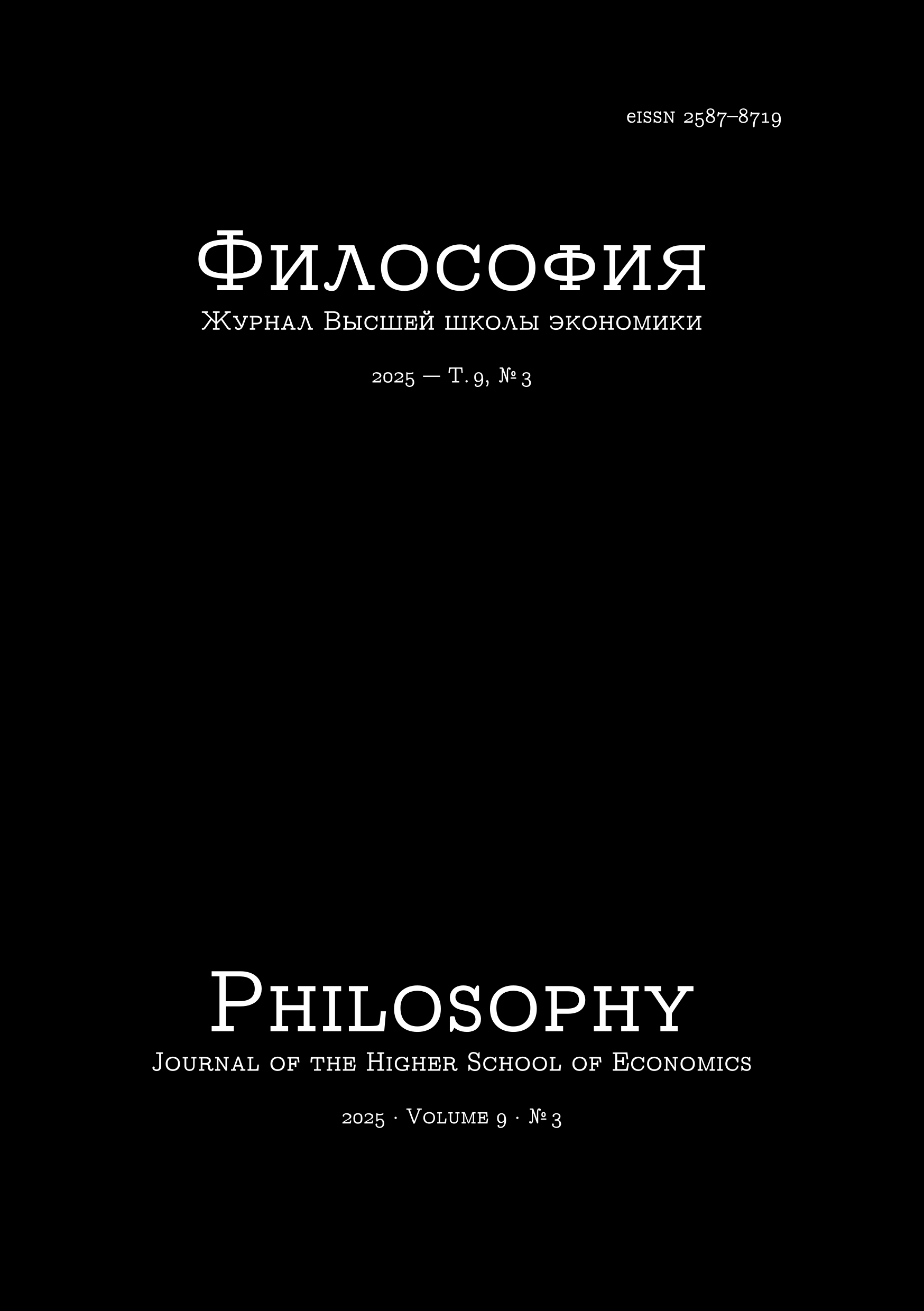Philosophy as Overcoming of Philosophy
On Different Interpretations of the Tractatus Logico-Philosophicus
Abstract
The so-called “resolute” interpretation of the Tractatus Logico-Philosophicus, which is actively discussed in recent literature, is considered. Its proponents demand from Wittgenstein's researchers and followers to finally take seriously Wittgenstein's words that he who has understood him should recognize all his propositions as senseless. “Resolution” consists in recognizing the need to fulfill this Wittgensteinian demand concluding his Tractatus. Proponents of this interpretation insist that the distinction made by many authors between mere nonsense and nonsense that is full of deep sense, illuminating, fraught with insight, etc., distorts the goal of the Tractatus. They insist that there is no doctrine, no concept or theory in the said work of Wittgenstein: neither about the essence of the world and language, nor about the essence of proposition, nor about the logical, nor about the need to distinguish between what can be said and what can only be shown by propositions. The main arguments of the defenders of the “resolute” interpretation are analyzed: indication of the misuse of talking about what cannot be said; the interpretation of the metaphor of the ladder to be discarded; the quotations to which they appeal; the perspective of a unified treatment of Wittgenstein's evolution and philosophy, which stands now as directed from beginning to end toward the one goal of eliminating philosophical problems by showing the senselessness of the expressions in which they are formulated. It is emphasized that the “resolute” interpretation leaves unexplained why all the sentences of the Tractatus were written. How can one devote years of one's own life to philosophy while clinging to the conviction that it is all made up of nonsense to be discarded? And if one finds this implausible, how then Wittgenstein's own words about the senselessness of philosophical statements and problems can be understood? It is shown that the weakness of “resolute interpreters” is due to the fact that they have too narrow an understanding of the function of propositions, of the role they can play. Therefore, their criteria for distinguishing sentences into senseful and senseless ones are too narrow.
Downloads
Copyright (c) 2025 Philosophy Journal of the Higher School of Economics

This work is licensed under a Creative Commons Attribution-NonCommercial 4.0 International License.






